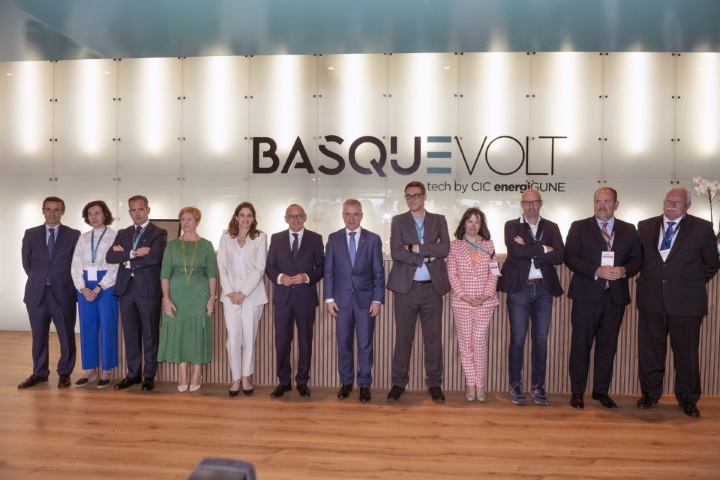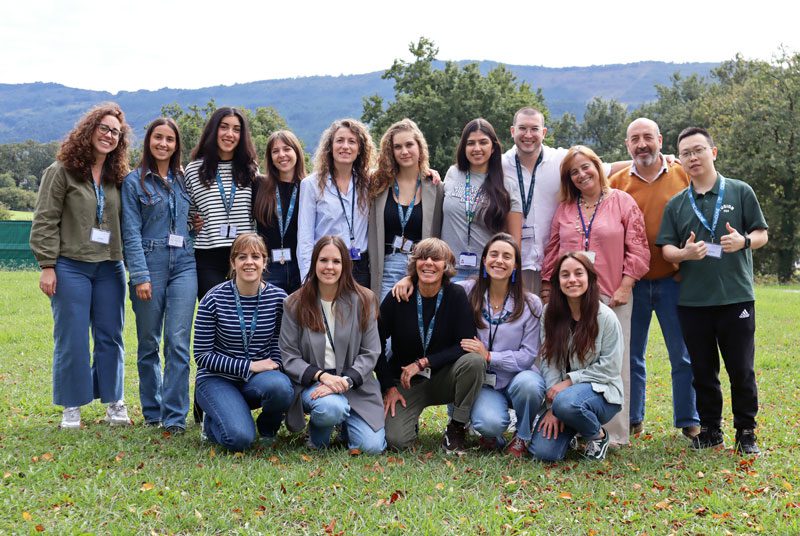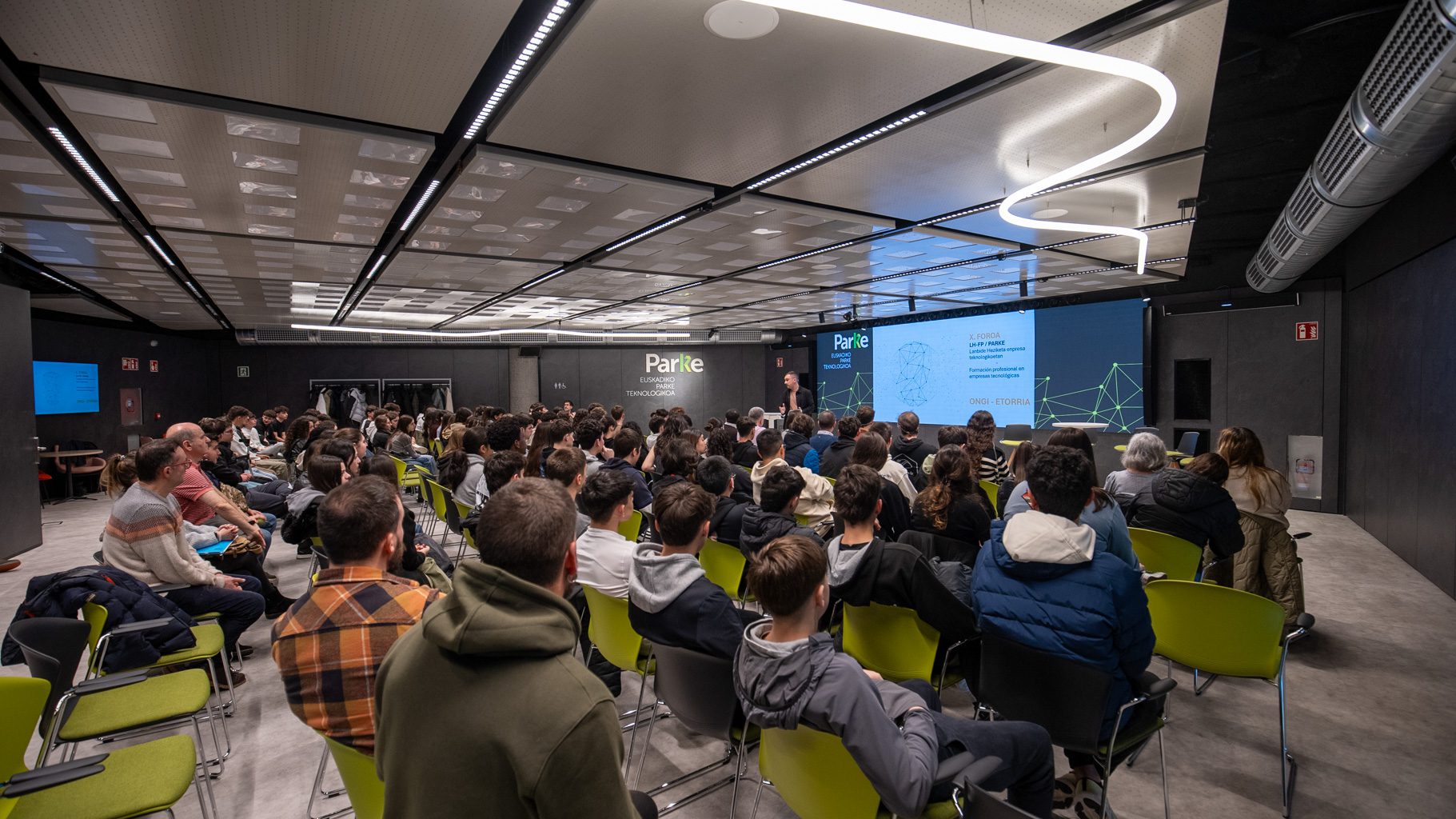The Lehendakari inaugurates the new R&D centre “Basquevolt Innovation Center”

The centre houses new laboratories to continue developing new generation solid-state battery cells with 100% European technology.
Basquevolt is a transformative initiative, with local technology, generating economy and employment to contribute to decarbonisation and environmental improvement.
Iñigo Urkullu describes Basquevolt as an example of technological and industrial development “made in Euskadi”, an example of the dynamism of our industrial sector, of innovation and collaboration.
Lehendakari encourages to continue generating an attractive ecosystem and improving the conditions for attracting and retaining talent
 The Lehendakari Iñigo Urkullu, accompanied by the Regional Minister for Economic Development, Sustainability and the Environment, Arantxa Tapia, attended the inauguration of the new “Basquevolt Innovation Center” R&D centre, where new laboratories are being set up to continue developing new generation solid-state battery cells with 100% European technology. The Lehendakari described the project as an example of the dynamism of our industrial sector, of innovation and collaboration, “an example that combines “research in the laboratory” with the “manufacture of the new battery prototype”.
The Lehendakari Iñigo Urkullu, accompanied by the Regional Minister for Economic Development, Sustainability and the Environment, Arantxa Tapia, attended the inauguration of the new “Basquevolt Innovation Center” R&D centre, where new laboratories are being set up to continue developing new generation solid-state battery cells with 100% European technology. The Lehendakari described the project as an example of the dynamism of our industrial sector, of innovation and collaboration, “an example that combines “research in the laboratory” with the “manufacture of the new battery prototype”.
Basquevolt S.A. started its activity in 2022 for the development and manufacture of materials for solid-state lithium batteries. It has a proprietary patented technology, a combination of polymers and inorganic materials, which takes lithium batteries beyond the state of the art and is the result of more than 10 years of research carried out at CIC energiGUNE by some of the world’s most renowned solid-state battery researchers. “This is Basquevolt. A transformative initiative, with local technology, generating economy and employment to contribute to decarbonisation and environmental improvement”, stressed Iñigo Urkullu.
One year after its creation, the company based on the Vitoria-Gasteiz Campus of the Euskadi Technology Park now has more than 40 employees, a team made up of international experts of 15 different nationalities and young local talent, who are working at full capacity in the development and industrial scaling of its technology, with which the public-private capital company competes globally with the most advanced companies in the world. The Lehendakari acknowledged that it is not easy for a pioneering and innovative project, in such an open and competitive sector, to present positive results after just one year of experience, but “Basquevolt has achieved it and it is a “textbook” project: technological and industrial development “made in Euskadi”. A transformative initiative that impacts on all global challenges: digital, energy, climate and social. Aligned with the European commitment to reindustrialisation”, he pointed out.
In his speech, the Lehendakari encouraged to continue generating an attractive ecosystem, with the sum of the Technology Parks, the Research and Development Centres, the university potential and the driving capacities of Basque companies in the industrial, automotive and energy sectors; as well as to continue improving the conditions for attracting and retaining talent. “Investment in human resources, their training and promotion, is a crucial asset in an ecosystem equipped with cutting-edge infrastructures, technology and equipment”, he pointed out.
“We have the same goal: to move forward as a society. To improve our quality of life every day. We will always find ourselves on this mission because we are pursuing the same common good: to grow and create wealth, to invest and generate employment opportunities”, concluded the Lehendakari.
Basquevolt
Basquevolt expects to have its first 20Ah cell prototype manufactured by the end of this year and its next goal is to start up a 1 GWh production line by the end of 2025, which will make it possible to reach the automotive market by 2027.
In addition to their impact on the electrification of the automotive sector, Basquevolt’s batteries will enable more competitive stationary energy storage, as well as advancing electrification in air and rail transport.




